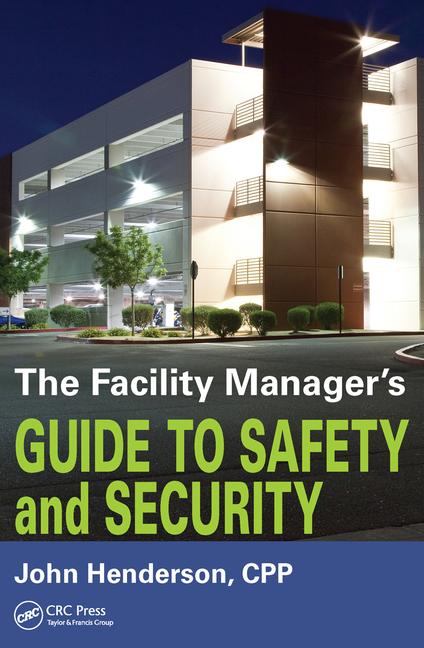How Updated Technology and Safety Facilities Provide Protection to Communities and Firefighters

The expanded and updated Fire Station #46 located in the South Dallas Oak Cliff community on Camp Wisdom Road. The renovated station is nearly double the size of its predecessor for a total of 11,500 square feet. All photos courtesy of Harrison, Walker & Harper, LLC.

The unveiling of the renovated state-of-the-art Fire Station #46, symbolizes a new beginning for the community and the 18 firefighters who now call the station home.


In a country with booming cities and growing populations, the need to protect citizens and accommodate for the growth of communities is at an all-time high. The Dallas-Fort Worth Metroplex has quickly become one of the top five largest markets in the United States, and with the expansion of major cities, both urban neighborhoods and surrounding suburban communities are more densely populated. One significant challenge in these growing areas is the ability to maintain, update and expand vital community resources including police stations, fire stations and other first responder centers. There’s a need to house more first responders, reliable safety facilities and accessible aid for citizens living in communities of all sizes and income levels. Implementing new technology that’s able to adequately serve these communities and provide protection to them is the necessary next step.
With a high demand to create and renovate facilities, also comes the need for funding. As one example, in Dallas in 2017, a portion of a $1.05 billion 2017 city bond project, directly funded updates to existing fire stations as well as an additional station to support growing, local communities.
While modernizing facilities, it’s important to remember that service looks different in every market. First responders need well-equipped buildings that will allow them to assist the community with any challenges or natural disasters they may frequently experience. For example, in places where flash floods are a concern, specialized safety equipment is needed to be able to assist the community when disaster strikes.
In Dallas, a local fire station recently implemented a feature to help with potential flooding in its area of operation. During the design and building process of a new fire station, our team expanded the facility’s capacity to accommodate a swift water rescue team due to its proximity to the Trinity River flood basin in southern Dallas. This meant purposely designing the station to accommodate large trucks with attached boat trailers, an onsite boat repair shop and an area allowing the team of firefighters to practice rescue simulations.
The specialized aquatic safety feature allowed the team to take quick action during late August flash floods in Dallas, responding to more than 200 calls from residents around the community. With the swift water rescue resource in place, first responders can better serve residents and prepare for potential natural disasters the area is prone to much more efficiently and with greater speed.
Specialized equipment doesn’t just save lives in markets where flood rates are high. Updated security measures have also saved lives in areas with prevalent wildfire outbreaks. During the renovation of an existing Dallas fire station, dedicated wildland fire prevention and mitigation service were added to the facility to better serve area residents.
Due to the size of the facility and proximity to Dallas’ wildland areas that are at risk for Southern Plains Wildfire Outbreaks, its ideal location accommodates the large equipment needed to combat wildland fires. The once unattainable capability for one of the nation’s largest at-risk cities is now one of its biggest assets for the security and well-being of the community. The facility also added three full apparatus bays for equipment, an EV charging station and an ICC-500 tornado storm shelter. With these combined features and a renovation that nearly doubled the station in size, it’s now capable of offering aid to community members in ways like never before and provides firefighters with the additional resources necessary to serve their community most effectively.
Updated technology in fire stations is essential to keeping communities safe. As important are the capabilities to accommodate the specialized needs of the community. According to Dallas Fire Rescue Lieutenant, Nelson Rossy, “The new fire stations provide our Dallas Fire Rescue team the best-in-class facilities they deserve. The new stations not only offer state-of-the-art comfort and safety for our firefighters but also include technology that will serve and protect the Dallas community for years to come.”
It’s crucial to prioritize the protection of communities, but it’s also just as important to prioritize the safety and health of the men and women who operate out of these facilities. There are 27,186 fire departments registered with the National Fire Department Registry with an estimated amount of 317,310 firefighters currently employed. The leading cause of death of firefighters is cancer due to harmful carcinogens, gasses and chemicals that are inhaled while on the job. 68% of firefighters develop cancer compared to 22 percent of the general population. Protecting the firefighters who serve the community has become a leading priority for our team during the design of new and existing stations.
Our team had an opportunity to create better facilities for the community, and based on Lieutenant Rossy’s research, we developed healthier work environments for the firefighters too. The need to protect firefighters and their health has become a focal point, due to the exposures they face daily. Two fire stations in Dallas, amongst the first in Texas, have implemented pressurized full transition zones to lower exposure to carcinogenic pathogens.
Still an emerging addition to fire stations, a pressurized transition zone is an advanced technology that allows firefighters to remove their equipment in a separate zone within the station, away from where they eat and sleep. Using a negatively pressurized filtration system, the harmful carcinogens remain in the red zone, unable to contaminate the other zones. Once they have removed their equipment, firefighters enter a safe, positive-pressurized zone of the station, called the ‘green’ zone. Creating the pressurized full transition zone offers an improved facility and a healthier, lifesaving work environment for firefighters. Doing this allows firefighters to effectively do their jobs without fear of these exposures and save the lives of those in their respective communities.
While protecting the physical health of the firefights is of great importance, our team also wanted to consider the mental health of the personnel, as well. In addition to installing the pressurized full transition zones, our team focused on creating spaces that would positively impact firefighters’ mental health. Both stations now have brand-new design features focused on specifically serving the well-being of the firefighters. These include a modernized living room area that can house the entire team with a more welcoming layout. The new floorplan offers a modern kitchen with high-end finishes, a covered porch area with a family sized grille, overseeing landscaped views and a fitness room, all of which help preserve firefighters’ mental health by reducing anxiety and relieving stress.
When our team entered the design process and creation of updating these fire stations that serve large masses of people, it was important to ensure our partners were well-versed in first-responder facilities. Our team worked closely with Dallas-based architecture firm, GSR Andrade to turn our visions into reality.
As communities continue to grow, the need for new technologies and designs geared toward safety that will help protect those who serve all community members are even more vital. Having the new facility in place, the community can rest easy knowing that the state-of-the-art fire station is now equipped to handle all their needs.
Additionally, our team witnesses firsthand how updated facilities are the heart of the community, serving as a safe haven for neighborhood residents, and a reflection that the community is evolving and becoming safer. We’ve also seen how these local fire stations that are in dangerous areas have used their updated facilities to connect with the residents and bring the community closer through positive events, such as BBQ gatherings, free car seat checks to parents, free blood pressure checks and check-ups on pets. Overall, an improved facility benefits not only the well-being and safety of the first responders, but also offers significant improvement in the surrounding communities through additional support and resources that better serve them.
Looking for a reprint of this article?
From high-res PDFs to custom plaques, order your copy today!









